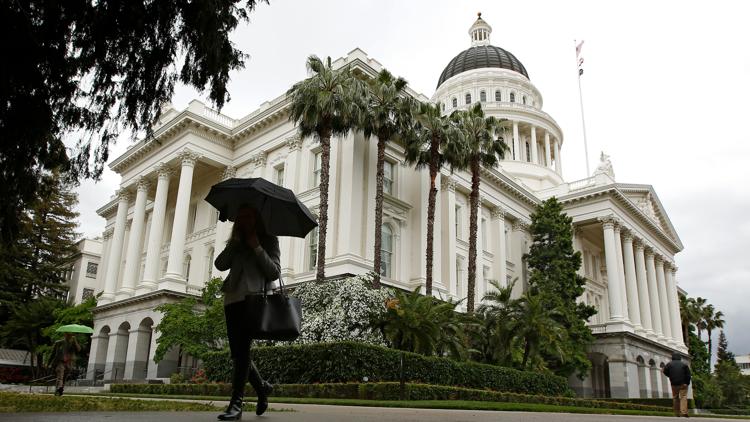CALIFORNIA, USA — A $20 billion affordable housing bond — which would have been the largest ever of its kind and the subject of a campaign half-a-decade in the making — won’t go before San Francisco Bay Area voters this November after all.
This morning, the board of the Bay Area Housing Finance Authority voted to scrap the measure for now, potentially punting their eleven-digit pitch to voters until at least 2026. This comes just two months after the board voted unanimously to place the borrowing plan on this year’s ballot. The money would have been used to fund the construction and preservation of subsidized housing across the region. Bay Area homeowners would have paid back the debt through property taxes.
“We’ve had to think about the long run, and it’s going to now need to be, we think, an even longer run, in order to preserve our collective ability to really fight and win,” said Heather Hood, who manages the northern California market for Enterprise Community Partners, a housing nonprofit and a member of the pro-bond coalition.
Hood choked up while adding: “We are recommending that you pull (the measure) from the ballot and I really deeply regret this recommendation.”
Today’s vote was unanimous, though some board commissioners expressed mixed feelings about the decision to punt on the measure. “If I probably had my own way, I think I would have rolled the dice and kept it on the ballot,” said Solano County supervisor and board meeting James P. Spering. “But I understand the dynamics that we’re operating with.”
The change of heart was born out of concerns about the public’s appetite for costly new measures, a pending lawsuit against the regional bond and worry about another measure on the ballot, Proposition 5. That statewide constitutional amendment would make it easier to pass local and regional affordable housing and infrastructure bonds by lowering the necessary electoral threshold for victory from the current high bar of two-thirds to 55%.
The campaign behind the Bay Area bond was always meant to be part of an electoral one-two punch. Even in a region almost synonymous with big spending liberalism, getting two-thirds of voters to agree to take out a $20 billion IOU was considered unlikely. Crossing the 55% threshold was deemed doable, if still a heavy lift. Recent polling commissioned by the authority found support for the potential bond hovering around that 55% threshold.
But members of the “Yes” coalition, a group of affordable housing developers and other housing-focused nonprofits, said they have growing concerns about Prop. 5. Rather than risk running an expensive bond campaign this year, the Yes on Regional Measure 4 campaign opted to wait and see if the statewide measure would pass first.
“We have to be strategic and understand that what’s very much important right now is measure five,” said Contra Costa County supervisor, Federal Glover, who also sits on the authority’s board.
Amelia Matier, a spokesperson for Prop. 5, said the campaign is “laser-focused on our campaign” and that “voters strongly support Prop 5 when presented fairly.”
The Bay Area bond appears to have issues of its own. Opponents of the measure, including former San Jose city councilmember Johnny Khamis, transit consultant Thomas Rubin and anti-density advocate Susan Kirsch filed a lawsuit against the Bay Area authority last week, arguing language describing the measure that would be listed in Bay Area voter guides was “false and/or misleading.” The executive board of the authority already acted on one of those claims, fixing what it described as a “mathematical error.” The annual cost of the measure was stated as $670 million. The corrected value was nearly $911 million.
Fixing ballot language and addressing lawsuits cost money, which also appeared to be a concern weighing on the board.
The agency “has a budget of approximately $8 million set aside for costs associated with putting the ballot measure and…some of that budget has been expended getting us this far,” said Andrew Fremier, executive director of the region’s Metropolitan Transportation Commission.
Calling into the hearing this morning, Khamis applauded the decision to pull the measure: “I don’t think that the voters are ready to pass another very large tax measure that’s going to make it very hard to keep their homes,” he said. “We have enough people living on the streets now and I don’t think a very large new tax is going to help.”
Amie Fishman, executive director of the Non-Profit Housing Association of Northern California, blamed the decision on “extremist anti-housing and anti-government activists.”
Not all housing advocates supported today’s decision. “We are extremely disappointed,” said Aboubacar “Asn” Ndiaye, executive director of the Northern California Land Trust, told the board. “The conditions of the moment, while not perfect, may not improve in the future.”
Other callers noted that Bay Area voters will likely be asked to weigh in on a public transportation bond in 2026.
This sudden reversal puts on hold for now a legislative debate that had been playing out in Sacramento over whether to subject the bond funds to stringent labor protections.
This has been a tough few months for affordable developers and advocates for more subsidized housing who had hoped to see a torrent of new public funding.
An earlier effort in the Legislature to put a statewide housing bond fizzled earlier this year, shunted aside by two competing borrowing measures focused on climate change and school facilities. Some northern California affordable housing developers saw the record-breaking Bay Area bond as the main event. Enterprise Community Partners had touted its own estimate that nearly 41,000 new homes for low-income Bay Areans were ready to go and simply required additional funding.
This article was originally published by CalMatters.
WATCH ALSO:





















